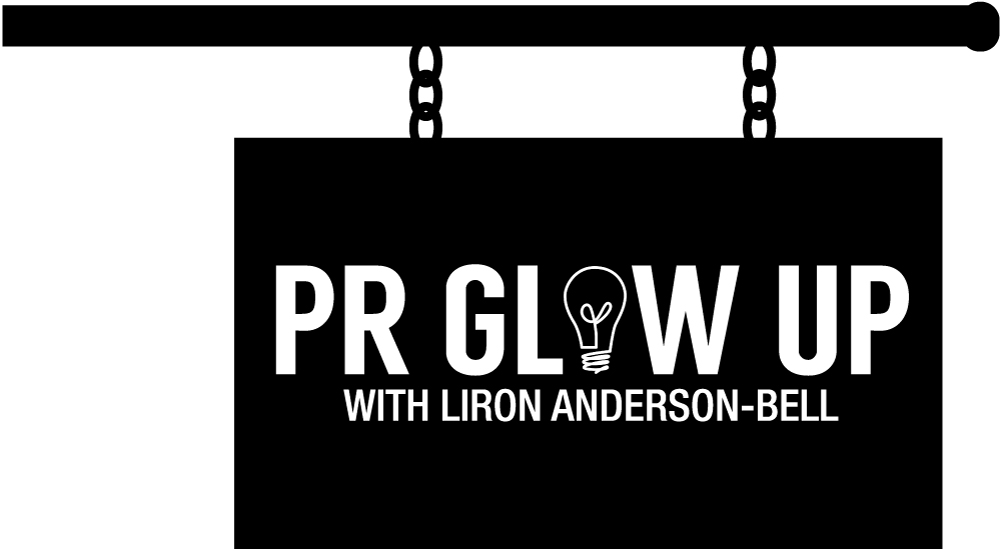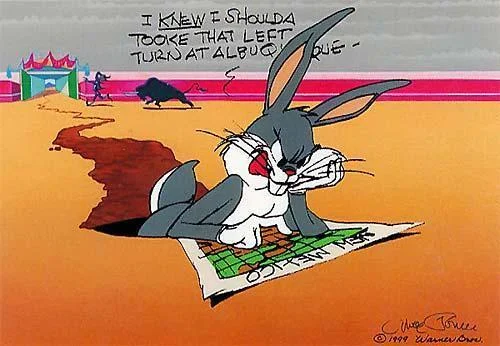Rapid Success in Solo PR Depends on This One Thing
/The main reason that I started The PR Glow Up was to help solo PR practitioners define and achieve professional success.
Success isn’t one-size-fits-all; for some PR practitioners, it might mean tripling the number of clients they have, while for others it could be converting more one-off clients to long-term retainers. On a more self-reflective level, success for many practitioners starts with giving themselves permission to hit pause, put in the work to improve foundational skills, and then jump back into the game with more confidence and competence.
I believe that if you really want to Glow Up and have transformational change in your solo PR career, you need to partner with a qualified and trusted external party to evaluate you and map out the journey.
That’s where a coach comes in.
PR people who work in an agency or in house at a brand have professional development infrastructure by default: a boss who has to perform their annual review and provide real-time feedback, or an HR department that has the resources to provide professional development to employees at different staffing levels or functions.
This isn’t the case for PR entrepreneurs like you. Where do you start? How do you know what you need to work on? How do you know what’s missing?
You can proactively research innovation in the industry and be intentional about stepping outside of your comfort zone to keep your skills sharp, but you can’t be objective about your performance and ability. That's why you need a coach.
The secret ingredient for rapid success: coaching
“Wait,” you say, “I already have a mentor.” Or, “Listen, I have great team of advisors to help me elevate my game.” That’s actually awesome news. Mentors and advisors are useful partners on your journey to success. You wouldn’t be working solo if you didn’t have at least a few people cheering you on, validating your work, and telling you that you’re great.
That’s empowering, but it’s not coaching.
Mentoring tends be a long-term, informal relationship with someone who supports and guides your personal development. And advisors – well, they give advice, and that’s usually it.
“Coaching is different in that it’s usually a shorter-term, purpose-driven, formal partnership that is focused on mastery of specific tasks, skills and performance benchmarks. Coaches also provide objectivity. You can’t see, hear, or experience ‘you’ through another person’s eyes — and if you really want to be on top of your game, you need to know how your execution of the craft is being received!”
Coaches improve your performance by providing constructive feedback, teaching specific skills, sharing knowledge that can catalyze breakthrough growth, guiding your thinking about key concerns, and your boosting self-awareness – all in order to help you transform professionally for the better.
Coaches play a vital role for entrepreneurs
Entrepreneurs can get stuck on the idea that going solo has to be as literal as possible. We trap ourselves into believing that we alone know what’s best for our businesses. We tell ourselves that asking for help is a sign of weakness. As a result, we may become skeptical about seeking guidance and help.
Discard these ideas completely.
Getting some coaching in your life is an investment in your own success. Everyone has things they need to work on and it’s both logical and necessary to put yourself in a position to succeed.
“LiRon, this all sounds amazing – I see how I could benefit from coaching, but seriously... I don’t have time. I’m grinding 24/7.”
I know you are, and I’ve been there. It’s BECAUSE I’ve been there that I know this type of thinking is a trap. Your to-do list is always going to be long when you're running the show. That's why you have to actually choose to make the time. I’ll let The Merovingian explain:
The merovingian has all the answers
I’m not trivializing the issue – as an entrepreneur, I know all too well that time is money. I also know that you have to be willing to work as hard for yourself as you do for your clients.
Moreover, working with a coach is an excellent way for solo PR aspirants to navigate the many blind spots that are particular to entrepreneurship and PR, and to develop a personalized plan to enter Continuous Improvement (CI) – that mindset where you deliberately and continuously identify opportunities to improve and benchmark your performance (more on CI a little later).
What do I mean by all of that? Here are some specific examples:
Facts and Learning: Coaching to strengthen your knowledge base
Are facts permanent? Ponder that for a moment.
Long ago, learned scientists believed that the earth was flat. In fact, as far as they were concerned, it was obvious. This seems ridiculous now, but based on what was known in that era, it was an accepted fact that our world was flat.
For a more modern example, consider that when I took high school chemistry, the Periodic Table contained 112 elements. It was presented as a fact. However, by the time my son took chemistry, there were 118 elements. That was a fact, too.
How? Six elements were discovered and recorded in the thirty years between my chemistry class and my son’s.
The facts changed.
The most important thing to understand about “facts” (whether you use real quotes or air quotes, snort) is that over time, they change. Theories are debunked and updated. Research reveals new information that requires us to discard beliefs we once held as truth. Facts are also influenced by countless considerations, like religion and cultural ideology.
If you’re a regular reader of my blog then you know that one of my favorite phrases is “you don’t know what you don’t know.” I have been saying that for as long as I can remember. I probably heard someone say it when I was young and worked it into my own lexicon. It resonates really strongly with me because of its simplicity and truth. It’s totally not debatable — it’s just a life truth that we all need to get comfortable with.
We have to be prepared to adapt to the world of ever-changing “facts” in all aspects of our life, including our jobs. Working with a coach who knows your profession – and even knows your niche within your profession – is a great way to keep your knowledge base current.
Other things that have changed significantly in PR over time are technology, resources and tools.
Email has replaced snail mail. Apps and software have put performance measurement into our hands, eliminating a whole industry of people who manually tracked TV, radio and print placements and impressions. New practice areas and sub-specialties in strategic communication have emerged.
How in the world can you keep up? Better question: as a solo practitioner, how are you supposed to vet all of these innovations and add them to your arsenal?
Many, many professions and industries require continuing education academic credits, re-certification, re-licensing, or other assessments in order for a practitioner to remain in good standing. Learning is seen as a lifelong pursuit. Very unfortunately, PR isn’t one of those professions.
As I’ve mentioned before, PR is one of the professional services that is woefully lacking of a universal minimum standard for being “ready” to practice. However, that doesn’t mean we, as practitioners, should be foolish enough (or egotistical enough) to believe that once we’re post-shingle, we know all we’ll ever need to know.
“There’s no point where you are so strong in your mastery of your craft that you don’t need a periodic check on how you’re doing, what’s working and what’s not, and how you can get better.”
Yet, solo PR is filled with people who launched their businesses before they had a critical mass of knowledge to achieve and maintain success.
They didn’t know what they didn't know.
But that’s not the space we want to operate the business of our dreams from, is it? Of course not.
Solo PR and Continuous Improvement
My goal is to coach you to and through your entry point into Continuous Improvement. For large companies, CI is entrenched in daily business operations, but for small businesses and entrepreneur-led enterprises, it’s a new and foreign concept.
CI is tougher because as a solo practitioner, you have to be the butcher, the baker, the candlestick maker, the garbage man, the bill collector, the letter carrier, the chef, the maid, and so on. In solo PR, even if you have an army of PR-adjacent partners (PRAPs) that keep you sane, you are probably immersed in super-serving clients and there is more work to do than hours in a day to get it all done. The last thing on your mind is yourself.
As a coach, I really want to help you change that! If you’d like to learn more, please sign up for my mailing list so you can be notified when I launch my next set of webinars that talk in-depth about the benefits of PR Glow Up coaching for solo PR pros.
Inspiration & Resources
If you’re still on the fence about whether coaching would be useful for you as a solo PR pro, I have two reading suggestions that provide excellent context (and persuasion!)
In 2011, The New Yorker published “Personal Best - Top athletes and singers have coaches. Should you?” by staff writer Atul Gawande, MD, MPH, a surgeon, writer and public health researcher. The article challenges the notion that people can achieve and sustain their best performance on their own (hint: Gawande doesn't think so #becausecoaching).
I also love and suggest The Half Life of Facts by Samuel Arbesman. Arbesman is an applied mathematician and the book is chiefly about why the fluid nature of facts (they are always changing) should matter in science. However, he breaks down the process in approachable and humorous language that provides some comfort for laymen who might otherwise find this premise a little unsettling.







